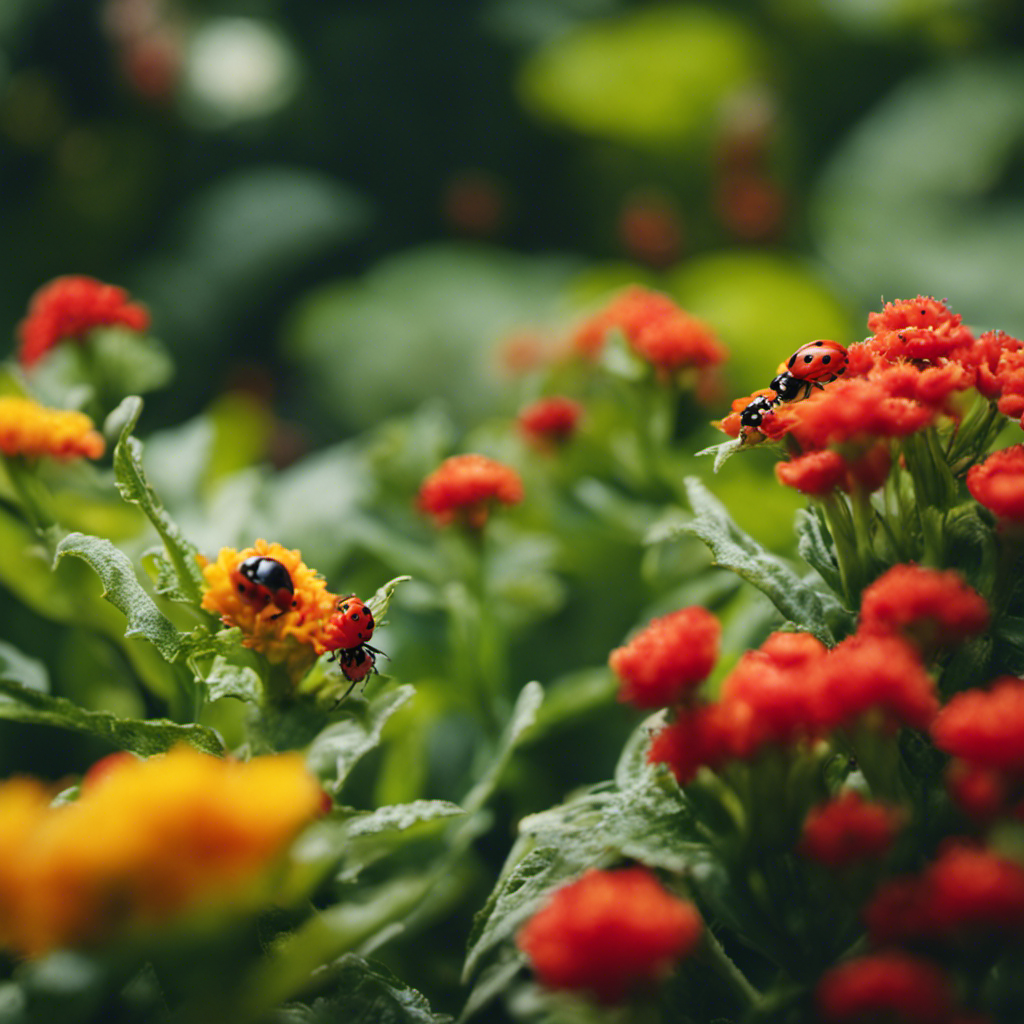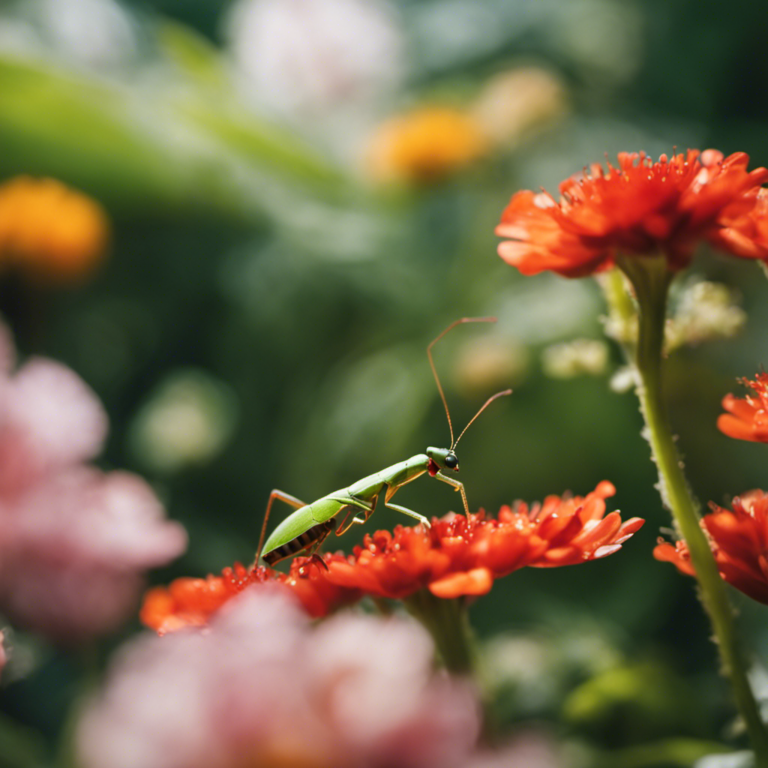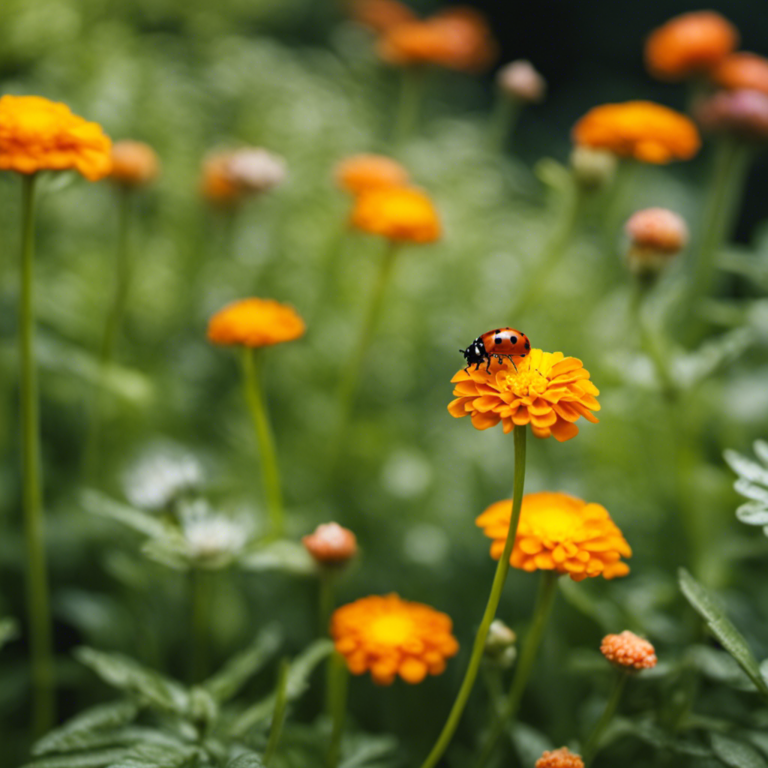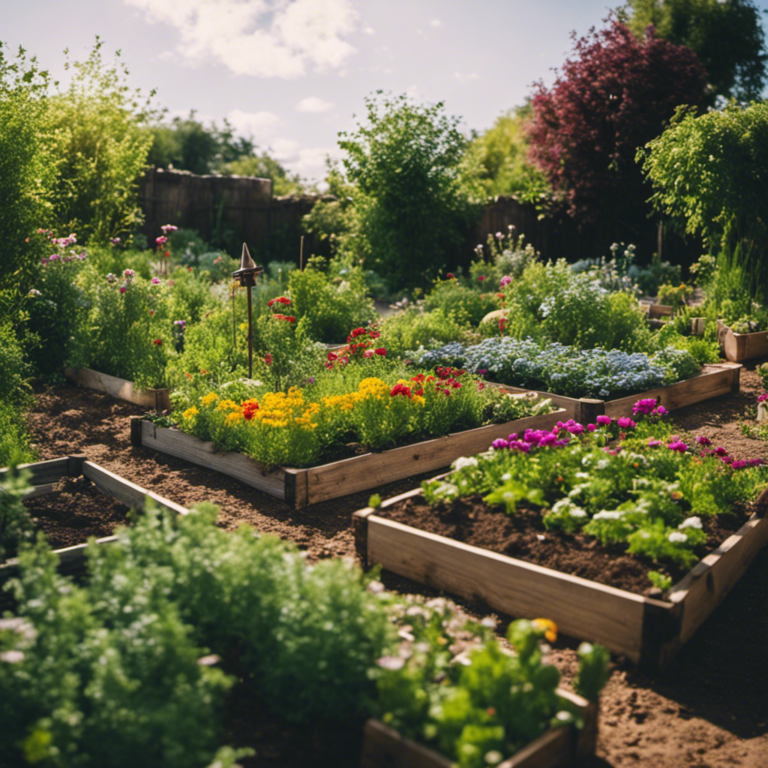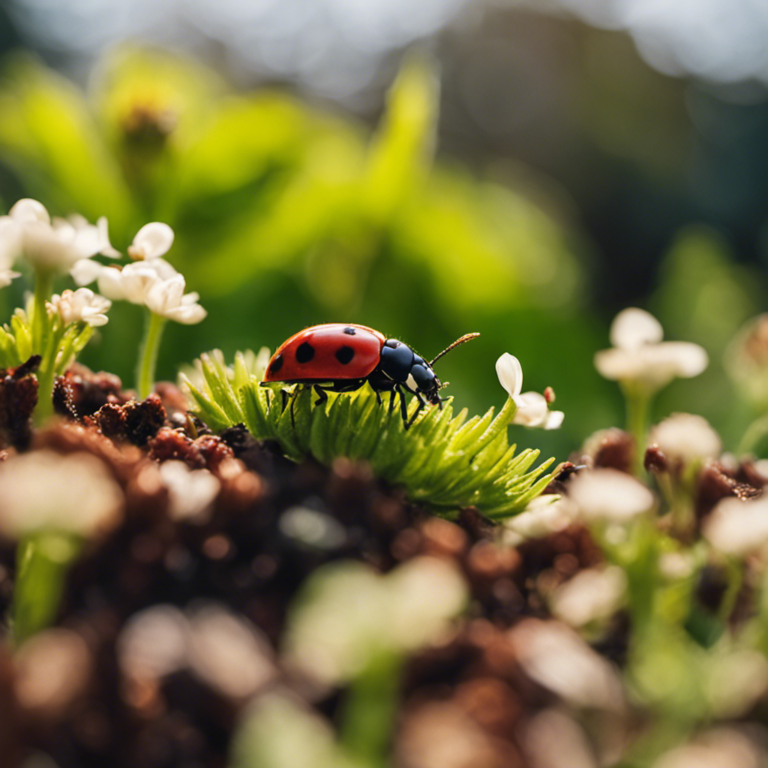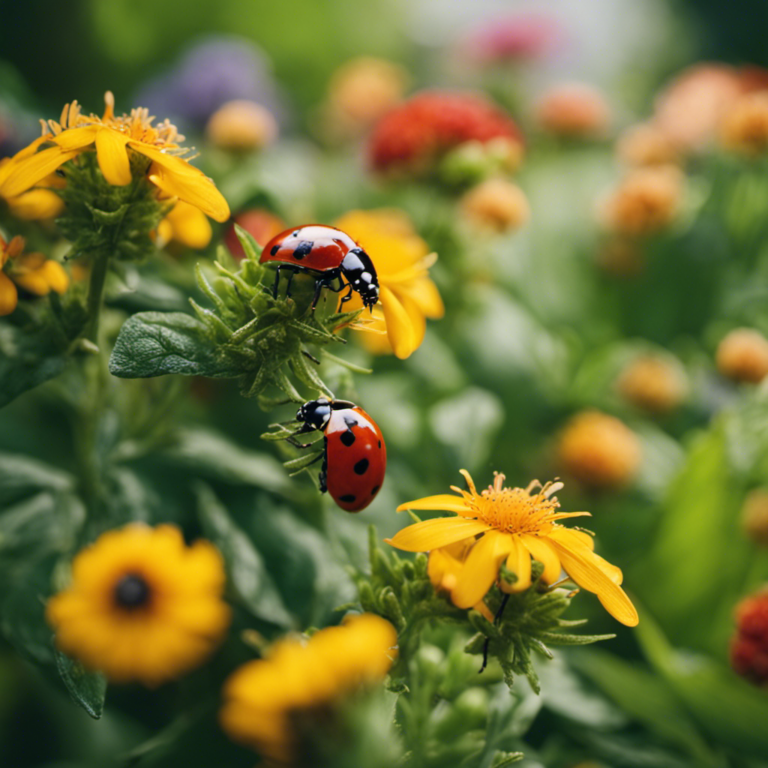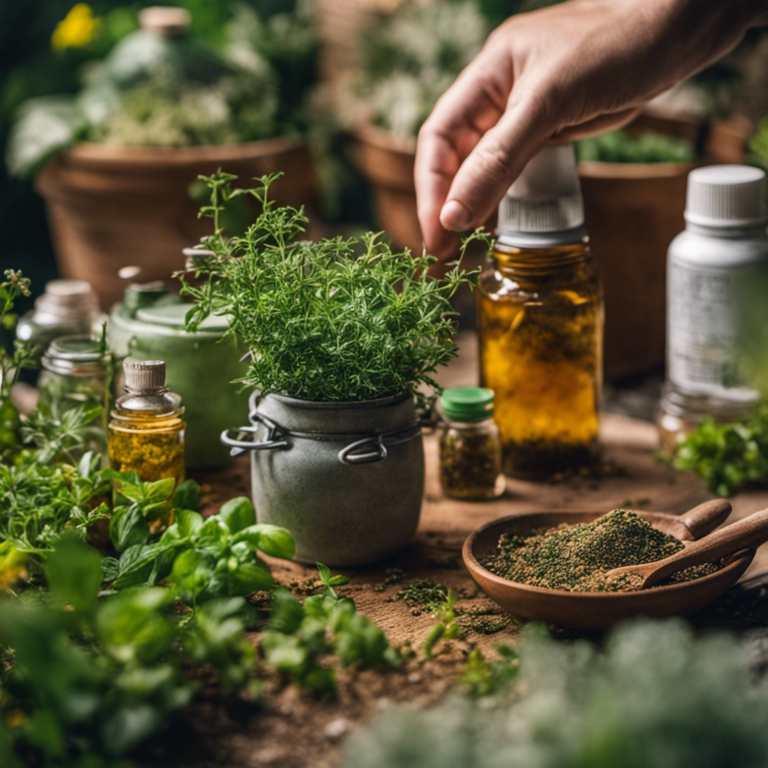Looking for a natural and chemical-free way to protect your garden from pests? Want to create a harmonious environment where plants and beneficial creatures can thrive? You’re in the right place!
In this article, we’ll explore the wonderful relationships between natural predators and your garden, the power of companion planting, homemade pest sprays, physical barriers, and the importance of nurturing soil health.
Get ready to transform your garden into a haven of beauty and balance, all while supporting the wonders of nature.
Key Takeaways
Controlling pests in your garden can be done in eco-friendly ways that not only protect the environment but also promote a thriving garden in harmony with nature. You have various options to choose from, such as attracting natural predators, implementing companion planting, creating homemade pest sprays, using physical barriers, or focusing on maintaining soil health. These methods are effective in keeping pests at bay while preserving the natural balance of your garden. By embracing the relationship between pest control and nature, you can witness the flourishing of life in your garden.
Natural Predators
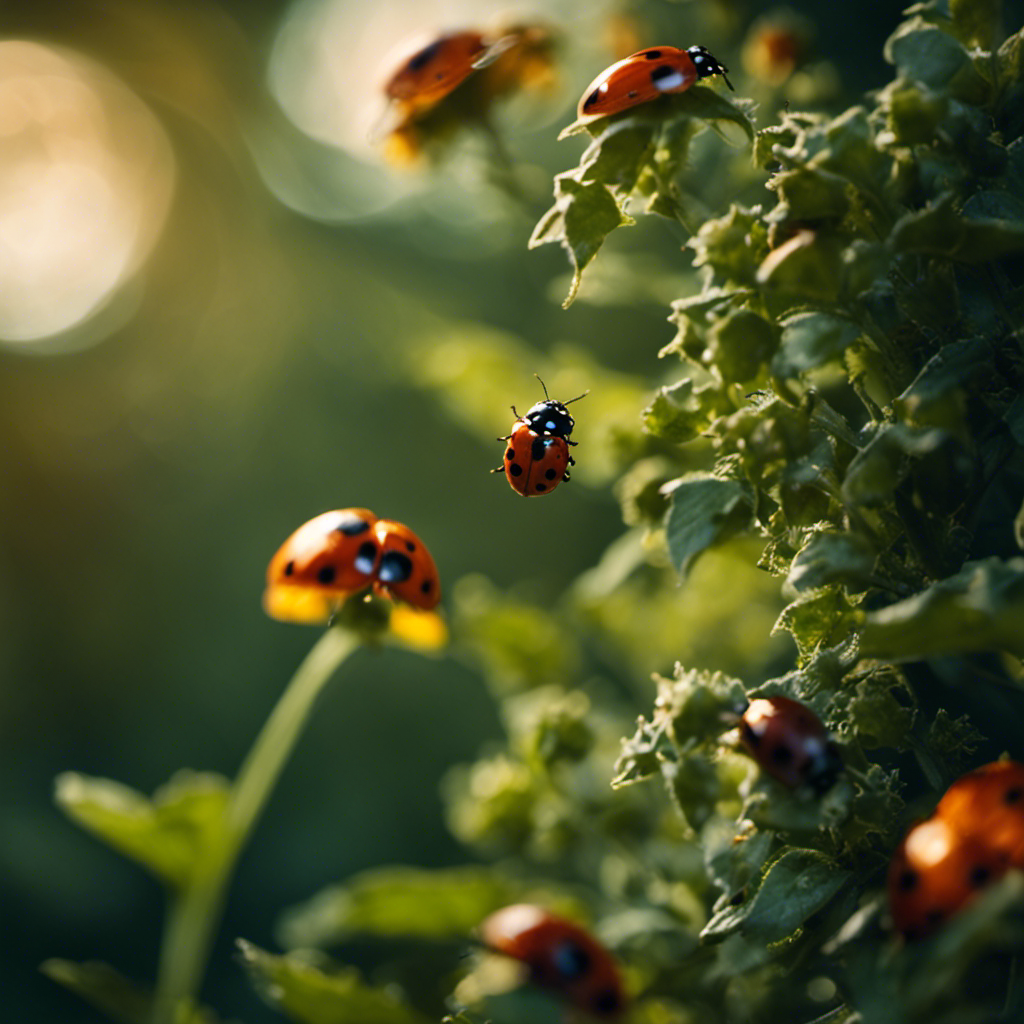
Finding natural predators is essential for effectively controlling pests in your garden. By implementing strategies such as biological control and integrated pest management, you can create a balanced ecosystem where beneficial insects thrive and help keep pest populations in check.
Ladybugs, for instance, are excellent predators of aphids, mites, and other harmful insects. They’re a gardener’s ally, as they consume pests while leaving your plants unharmed. Another beneficial predator is the praying mantis, which stealthily hunts a variety of insects, including flies, moths, and beetles.
To attract these natural predators to your garden, it’s important to create a habitat that offers shelter, food, and water. Planting diverse flowering plants can attract beneficial insects, and it’s advisable to avoid using chemical pesticides that can harm these helpful creatures.
With some careful planning and consideration, you can encourage the presence of natural predators and achieve effective pest control in your garden.
Companion Planting
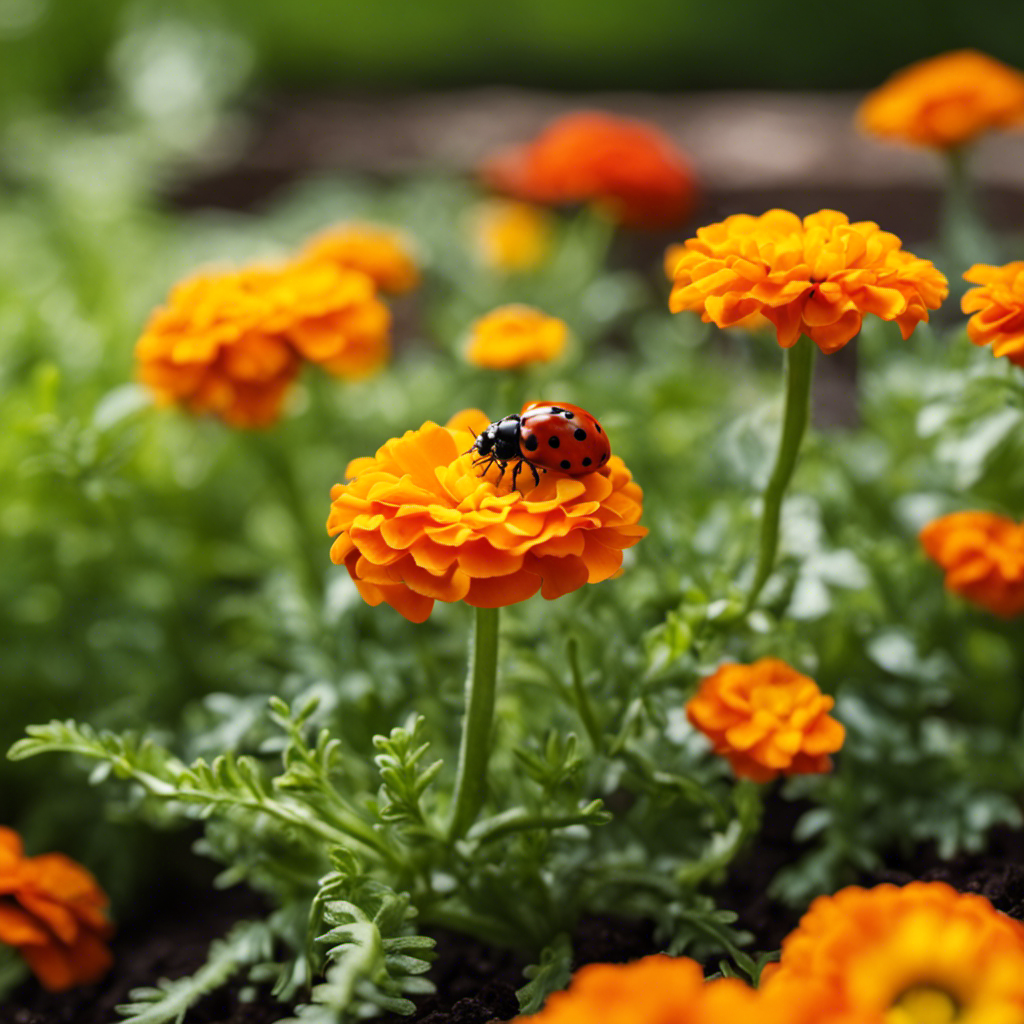
Enhancing Natural Pest Control with Companion Planting
To improve the effectiveness of natural pest control methods, consider incorporating companion planting into your garden. Companion planting involves strategically placing plants together to benefit each other in various ways. This technique not only attracts beneficial insects that prey on garden pests but also promotes healthy growth while deterring unwanted insects. Let’s explore some examples of companion plants and the benefits they offer:
- Marigolds: These plants repel aphids and nematodes, helping to protect your garden from these damaging pests.
- Basil: Basil attracts bees while repelling flies, creating a more enticing environment for pollinators.
- Nasturtiums: Planting nasturtiums can deter whiteflies and squash bugs, reducing the risk of infestations.
- Chives: Chives act as a natural repellent for carrot flies and aphids, safeguarding your crops.
- Sunflowers: Sunflowers attract ladybugs, which are beneficial insects that prey on aphids, providing a natural form of pest control.
In addition to companion planting, another important practice is crop rotation. By changing the location of your crops each year, you can prevent the buildup of pests and diseases in the soil. Crop rotation helps maintain a healthy and balanced garden ecosystem.
Remember, companion planting and crop rotation are valuable techniques for sustainable gardening. By implementing these practices, you can reduce the need for harmful pesticides and create a thriving garden ecosystem. As you plan your garden, consider incorporating these companion plants and rotating your crops for a successful and pest-resistant harvest.
‘Companion planting and crop rotation are essential strategies for a thriving and pest-resistant garden.’
Homemade Pest Sprays
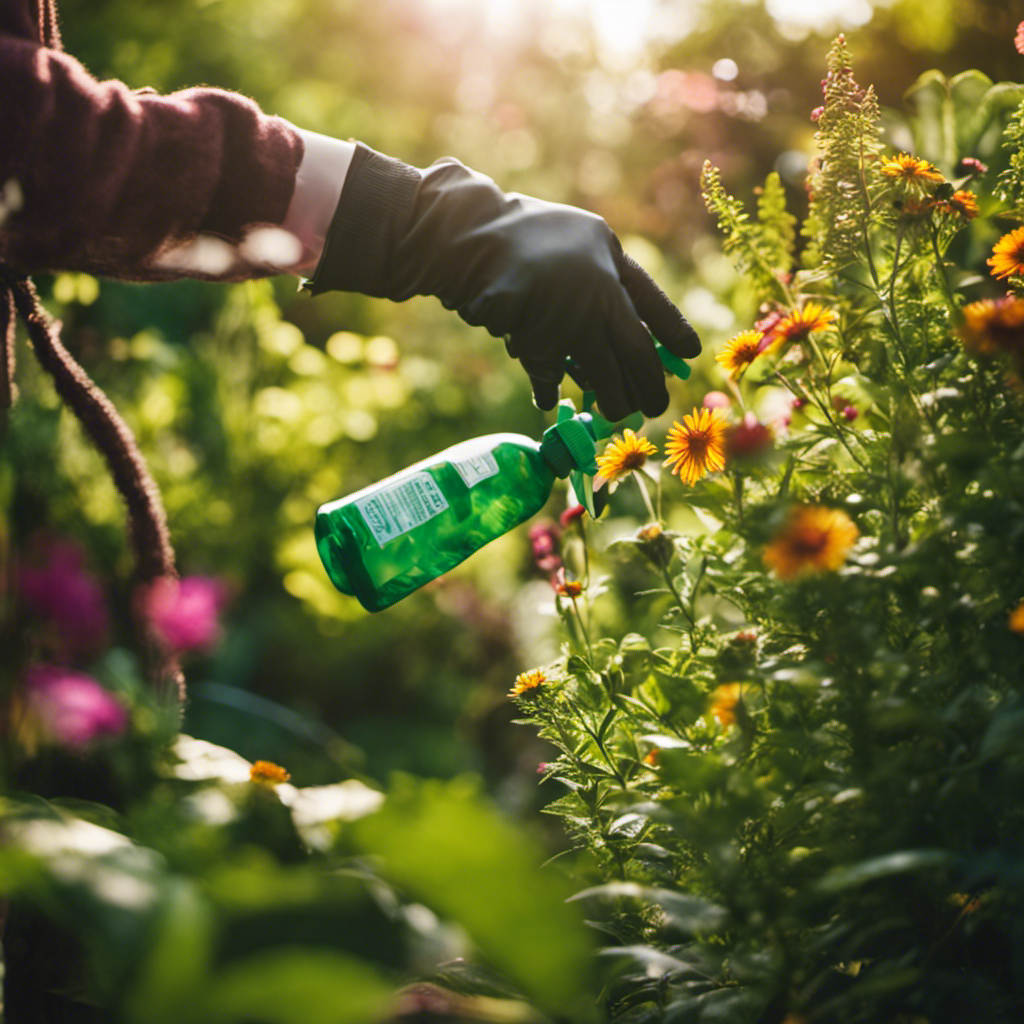
Make your pest control efforts more effective by using homemade pest sprays. Creating your own pest sprays not only helps you save money, but also gives you control over the ingredients you use.
Essential oils are a natural and insect-repelling option for homemade pest sprays. For instance, peppermint oil works well against ants, spiders, and aphids, while lavender oil is effective against mosquitoes and fleas. To make a simple homemade pest spray, mix a few drops of essential oil with water in a spray bottle and shake well before using.
Another option is to make organic insecticides using ingredients like garlic, neem oil, and cayenne pepper. These homemade pest sprays are eco-friendly and provide a safe and effective way to keep pests away from your garden.
Physical Barriers
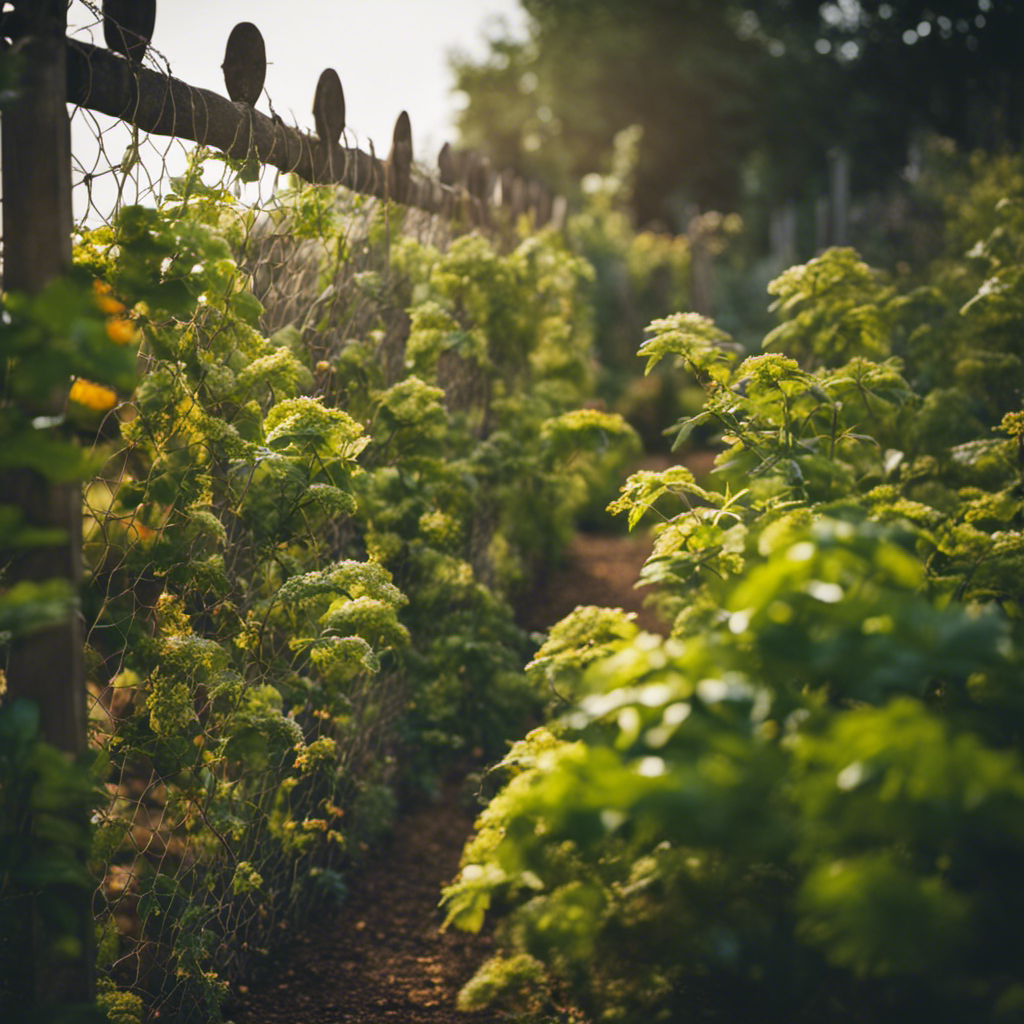
You can enhance your pest control efforts in the garden by using physical barriers. These barriers are a practical and eco-friendly way to keep pests away from your plants.
One option is to use lightweight fabric row covers, which create a barrier between your plants and pests, effectively protecting your valuable crops.
Another effective method is installing fences or netting around your garden to prevent larger pests like rabbits and deer from entering.
Additionally, using mulch as a physical barrier can deter pests.
Another natural approach to pest control is planting pest-resistant plants that have built-in defenses against pests, reducing the need for chemical pesticides.
Soil Health
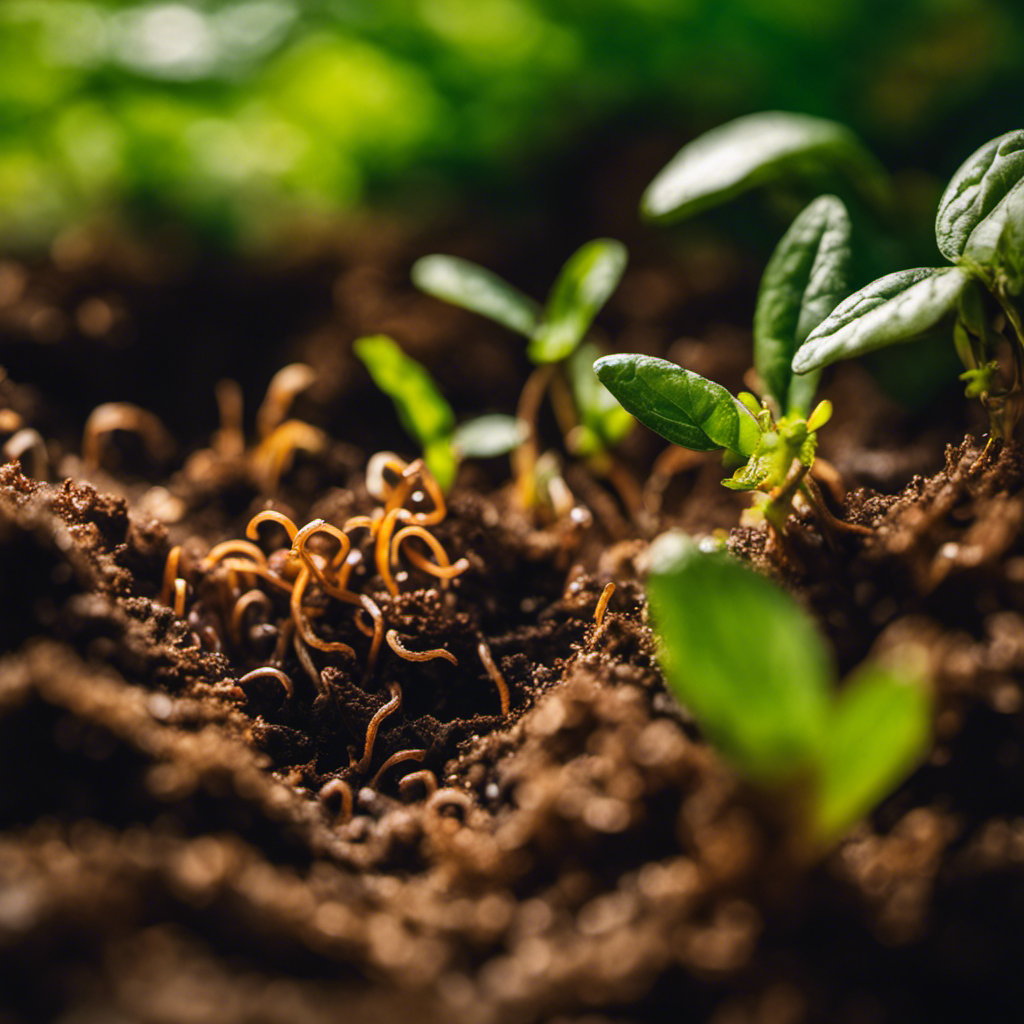
Improving soil health is essential for fortifying your garden against pests and nurturing a thriving ecosystem. Sustainable farming practices and the use of organic fertilizers play a crucial role in achieving this goal.
When it comes to soil health, sustainability should be your focus. Avoiding synthetic fertilizers and pesticides not only benefits the environment but also has long-term advantages for your garden. Instead, choose organic fertilizers that provide essential nutrients and promote soil microbial activity.
Compost, worm castings, and well-aged manure are excellent options to consider. These organic fertilizers help enhance soil structure, retain moisture, and support beneficial organisms that naturally control pests.
Conclusion
Whether you choose to attract natural predators to your garden, create a companion planting system, make homemade pest sprays, use physical barriers, or focus on maintaining soil health, there are plenty of eco-friendly ways to control pests in your garden.
By implementing these natural methods, you not only protect the environment but also nurture a thriving garden that’s in harmony with nature.
Embrace the beautiful relationship between pest control and nature and witness your garden flourish with life.
